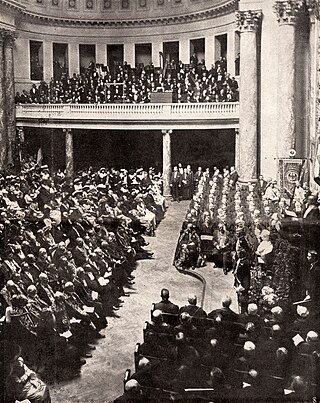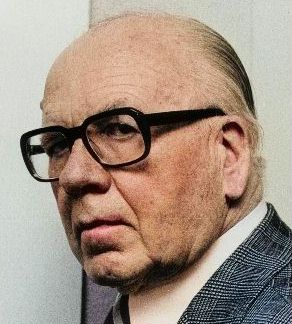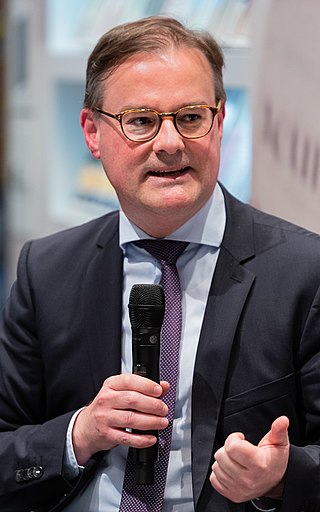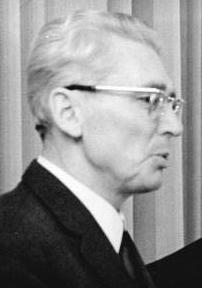Related Research Articles

The University of Freiburg, officially the Albert Ludwig University of Freiburg, is a public research university located in Freiburg im Breisgau, Baden-Württemberg, Germany. The university was founded in 1457 by the Habsburg dynasty as the second university in Austrian-Habsburg territory after the University of Vienna. Today, Freiburg is the fifth-oldest university in Germany, with a long tradition of teaching the humanities, social sciences and natural sciences and technology and enjoys a high academic reputation both nationally and internationally. The university is made up of 11 faculties and attracts students from across Germany as well as from over 120 other countries. Foreign students constitute about 18.2% of total student numbers.
Gisela Bock is a German historian. She studied in Freiburg, Berlin, Paris and Rome. She took her doctorate at the Free University Berlin in 1971 and her Habilitation at Technische Universität Berlin in 1984. She has taught at the Free University Berlin (1971–1983) and was professor at the European University Institute (1985–1989) in Florence, Italy, at the University of Bielefeld (1989–1997) and then at the Free University Berlin. She retired in 2007.

Otto Hintze was a German historian of public administration. He was Professor of Political, Constitutional, Administrative and Economic History at the University of Berlin. Influenced by Ernst Troeltsch and Max Weber, he emphasized the continuity and rationality of Western institutions.

Hans Joas is a German sociologist and social theorist.

Wolfgang Fortner was a German composer, academic composition teacher and conductor.

Jörn Leonhard is a historian and professor of Western European History at the History Department of the University of Freiburg since 2006. From 2007 to 2012, he was co-director of the School of History at the Freiburg Institute for Advanced Studies (FRIAS). His published works focus on the history of liberalism, nationalism, empires and wars. Leonhard has received several important research awards. His books “Die Büchse der Pandora” (2014) as well as “Der Überforderte Frieden” (2018) established him as an important representative in the research of global history.
Heinrich Joseph Floß, or Floss, was a church historian and moral theologian in the 19th century. As a professor of theology at the University of Bonn, he edited a collection of the work of John Duns Scotus, the Franciscan theologian. During the Kulturkampf, Floss was constrained by the anti-Catholic legislation.
The Institut für Dokumentologie und Editorik is a German association of researchers working on the application of digital methods to historical documents. Fields of interest include digitization, transcription, text encoding, textual criticism, critical scholarly editing, digital palaeography, and digital codicology. It was established in 2006 and has contributed in several ways to the field of digital humanities and has organized Summer Schools on a regular basis at various universities in Germany and Austria. Most notably, the IDE publishes the series Schriften des Instituts für Dokumentologie und Editorik distributed in print and freely online. The IDE supports open access. The series is discussed and reviewed in German and international journals.

The Faculty of Biology is one of the eleven faculties of the University of Freiburg in Freiburg im Breisgau, Baden-Württemberg, Germany. It is part of a strong life sciences network including institutions such as the Max Planck Institute of Immunobiology and Epigenetics, the Bernstein Center Freiburg (BCF), the Center for Applied Biosciences and the Center for Biological Systems Analysis, which started operations in 2008 as offspring of the Freiburg Initiative for Systems Biology (FRISYS), funded by the Federal Ministry of Education and Research (BMBF).

Silja Vöneky is a German jurist, specializing in international law and philosophy of law. She is a professor of public law, international law, and ethics of law at the University of Freiburg.
Karin Flaake is a German sociologist and professor (retired) at the Carl von Ossietzky University Oldenburg. Her publications on the adolescence of young women and men are part of the literature of socio-psychologically oriented gender research. Another focus of her work is on the chances of changing gender relations in families.

Herbert Kurt Fechner was an East German politician who served as the second Lord Mayor of East Berlin from 1967 to 1974.

Eva Schlotheuber is a German historian of Christianity in the Middle Ages.
Kurt Kluxen was a German historian. From 1963 to 1979 Kluxen taught as a full professor for middle and modern history at the University of Erlangen-Nuremberg. He became known to a wider audience mainly through his History of England.
Sebastian Voigt is a German historian at the Institute for Contemporary History, Munich - Berlin, and a fellow at the Institute for Social Movements, Ruhr University Bochum, Germany. He specializes in the history of the trade union and the labor movement, Antisemitism, (anti)-communism and the history of the political-left.

Ewald Grothe is a German historian. Since 2009 he has been an extraordinary professor at the Bergische Universität Wuppertal and since 2011 he has been head of the Archive of Liberalism of the Friedrich Naumann Foundation for Freedom in Gummersbach.
Matthias Untermann is a German art historian and medieval archaeologist.
Catherine Elizabeth Rigby is a scholar in the interdisciplinary field of environmental humanities.
Kerstin Brückweh is a historian with a focus on German and British modern and contemporary history. She is a professor in economic and social history at the Berlin University of Applied Sciences and Technology in Berlin, Germany.

Heidelinde "Heidi" Schelhowe (born Heidelinde Heyl 25 March 1949 – 11 August 2021) was a German university professor. She headed the Digital Media in Education department in Computer Science and Mathematics at the University of Bremen. From 2011 to 2014, she was the vice-rector for Teaching and Studies there. From 2011 to 2020, she was a member of the ZDF Television Council in the area of science.
References
- ↑ Birth year from German National Library catalog, retrieved 2023-12-22
- ↑ Schalamon, Stella (12 June 2021). "Interview mit Umwelthistorikerin: "Man sprach vom Miasma"" [Interview with environmental historian: "The language of the miasma"]. Taz (in German). Retrieved 2023-12-22.
- ↑ "Curriculum vitae" (PDF). European Society for Environmental History. June 2023. Retrieved 2023-12-22.
- 1 2 "Prof. Dr. Melanie Arndt — Freiburg Institute for Advanced Studies – FRIAS". www.frias.uni-freiburg.de. Retrieved 2023-12-21.
- ↑ "Nebenamtliche Prorektorinnen für Universitätskultur sowie für Internationalisierung und Nachhaltigkeit gewählt". idw – Informationsdienst Wissenschaft. 13 December 2023. Retrieved 2023-12-22.
- ↑ Reviews of Gesundheitspolitik im geteilten Berlin:
- ↑ Reviews of Tschernobylkinder:
- Astrid Sahm, WerkstattGeschichte, doi : 10.14361/zwg-2022-850118
- Susanne Schattenberg, Jahrbücher für Geschichte Osteuropas, JSTOR 27073866
- Frank Steffen, Nordost-Archiv,
- Yuliya von Saal, sehepunkte,
- Anna Veronika Wendland, H-Soz-Kult,